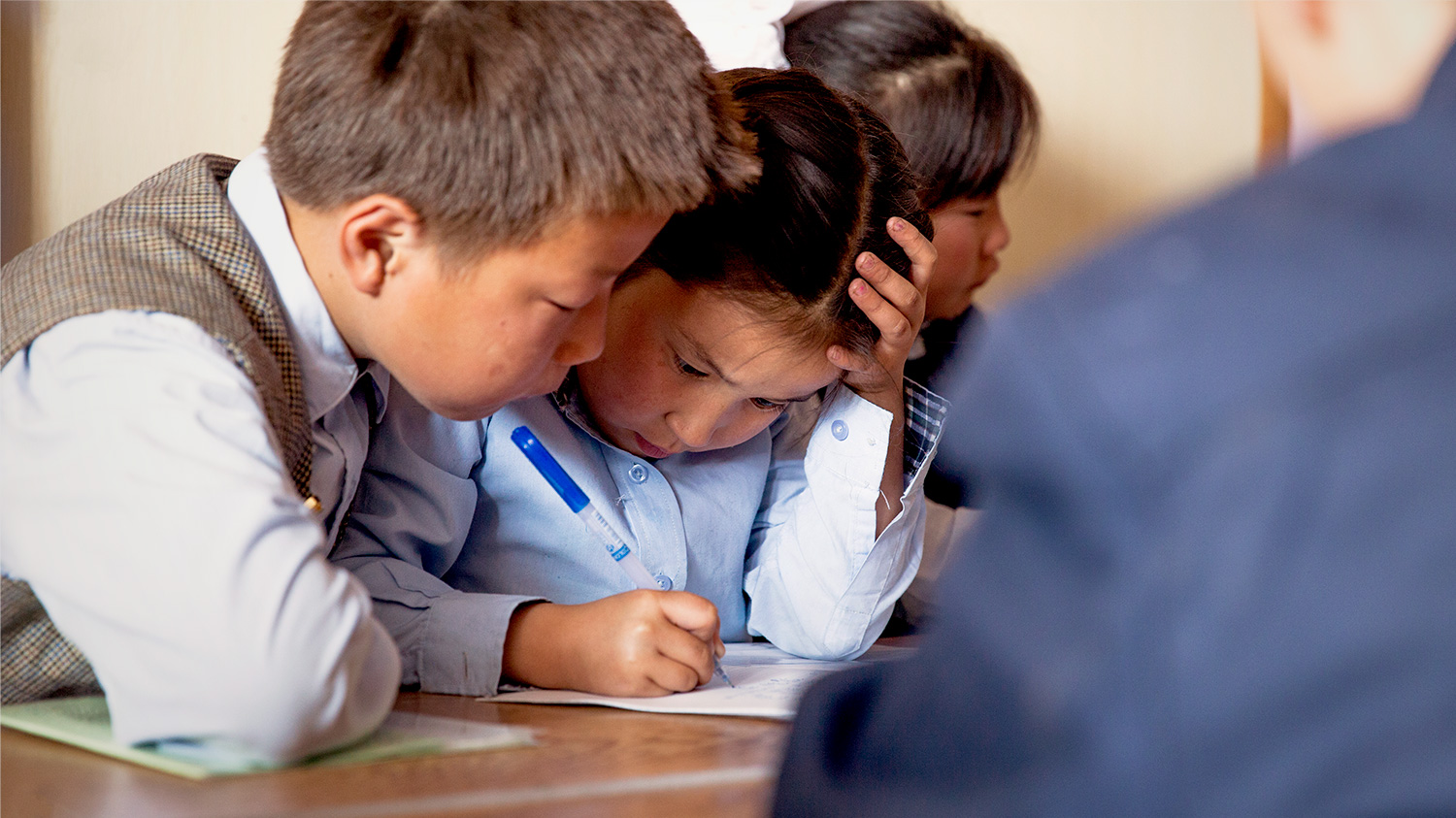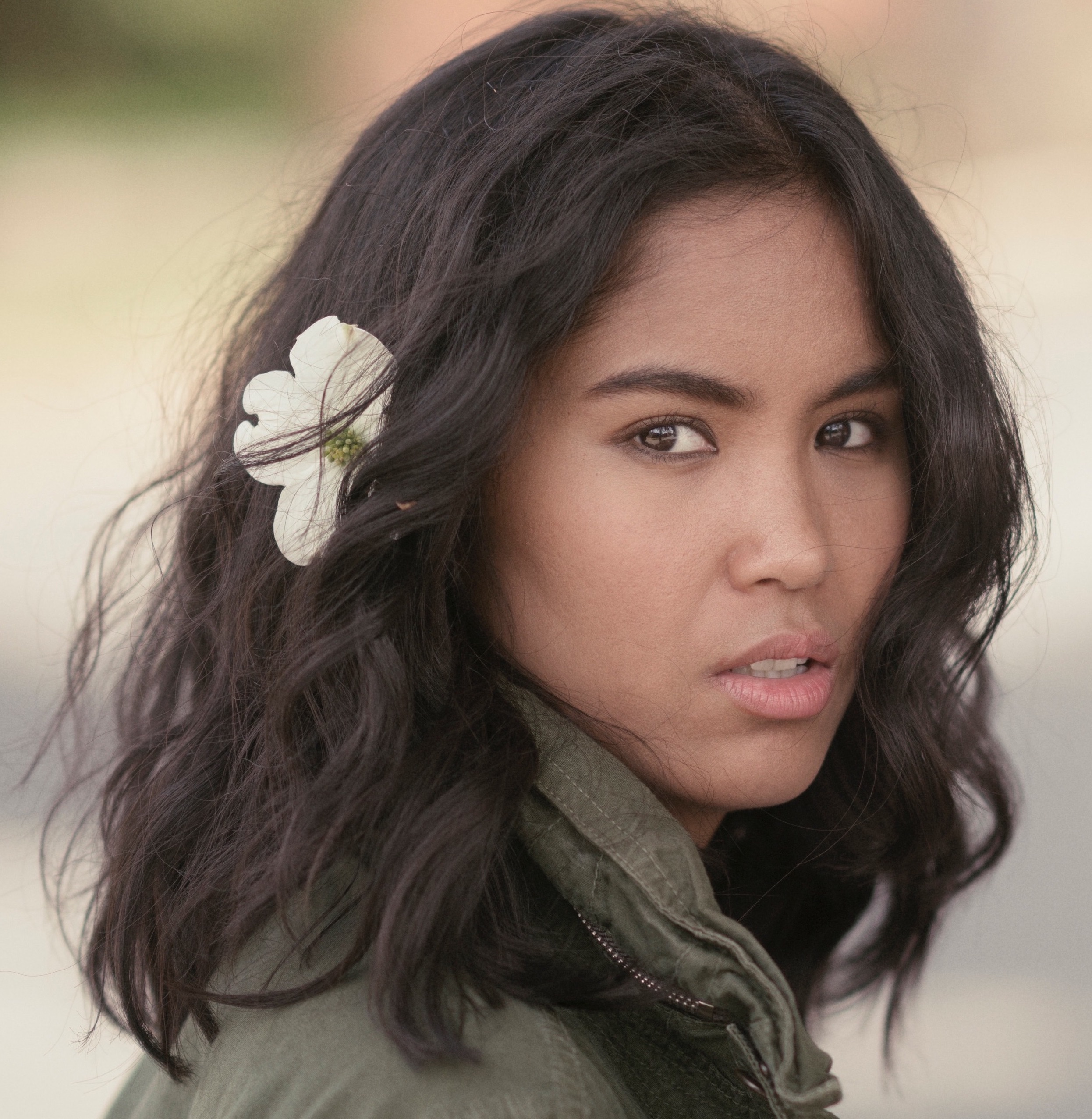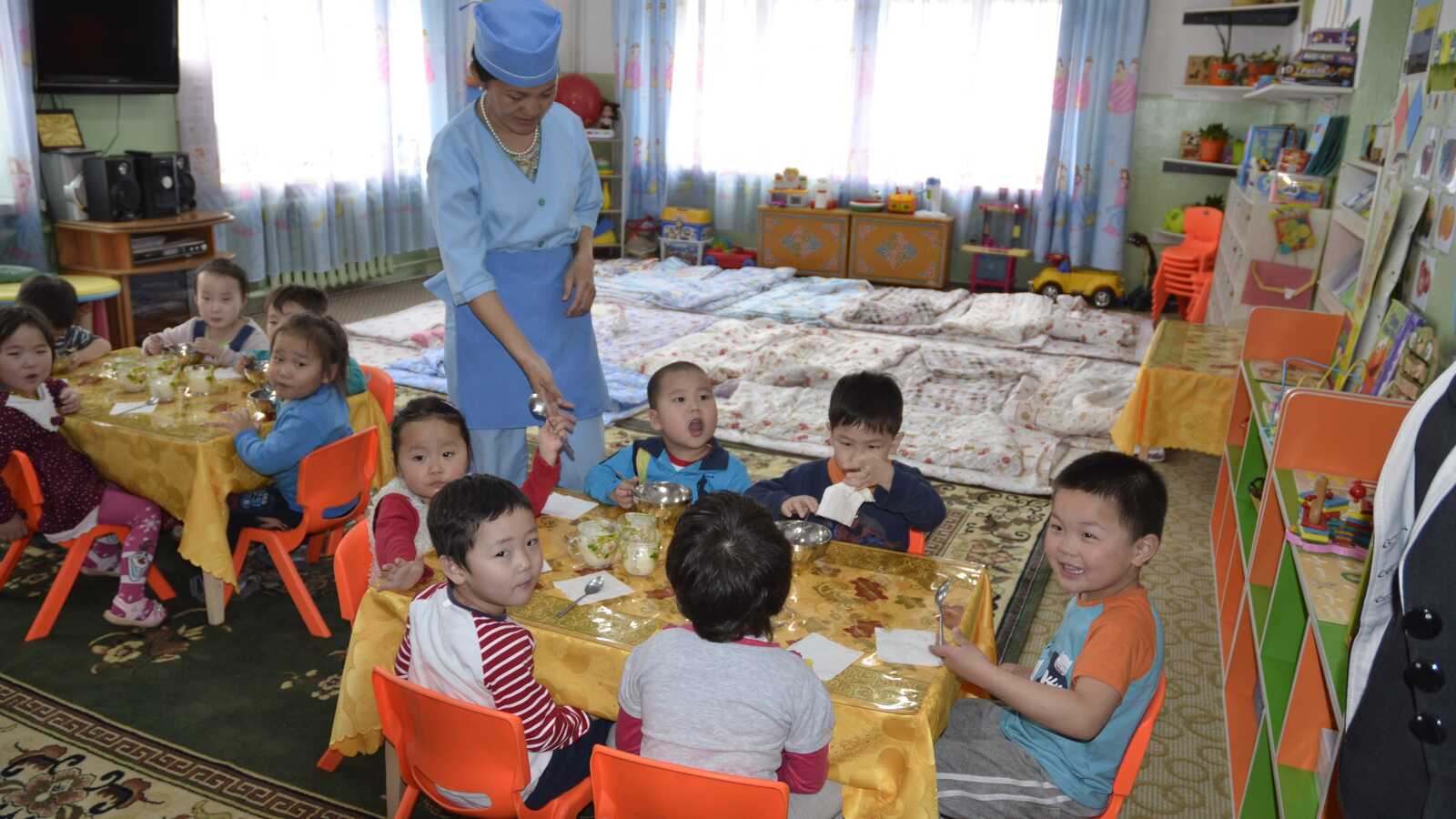At a special library and after-school program in Ulaanbaatar, Mongolia, children growing up in poverty discover a love of reading — and so much more. Read the poems that several children wrote in gratitude to sponsors and donors for their beloved library, full of dreams.
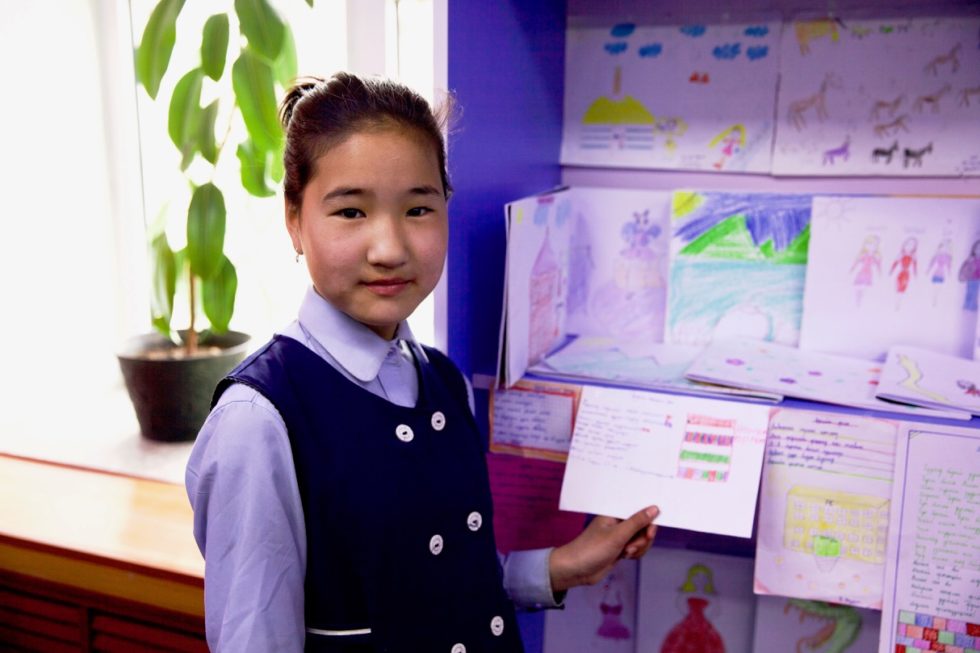
Smiling shyly, 12-year-old Davaa brings her library book over to show me what she is reading. The title is in Mongolian Cyrillic, but the cover image seems familiar. It’s a group of Western-looking girls in Civil War-era dress, sitting around a table, eating pie.
“She is working on a book about little ladies,” explains our translator, May Gombo, a member of the Holt Mongolia staff.
Little ladies… Oh, it’s “Little Women!” I realize. Of course, Davaa is reading “Little Women” — the classic Louisa May Alcott story about the four March sisters, a story almost unavoidable if you’re a girl under 12 years old and growing up anywhere in the U.S. It’s perhaps surprising to see it here, in Ulaanbaatar, Mongolia — about as far as you could possibly get from the book’s setting in Concord, Massachusetts. But it’s not at all surprising that the book’s timeless and universal themes would resonate with a young woman like Davaa. “Little Women” is a story about the bonds of sisterhood, and about a family learning to live with less after the loss of status and wealth. It’s about growing up, and about learning what’s most meaningful in life.
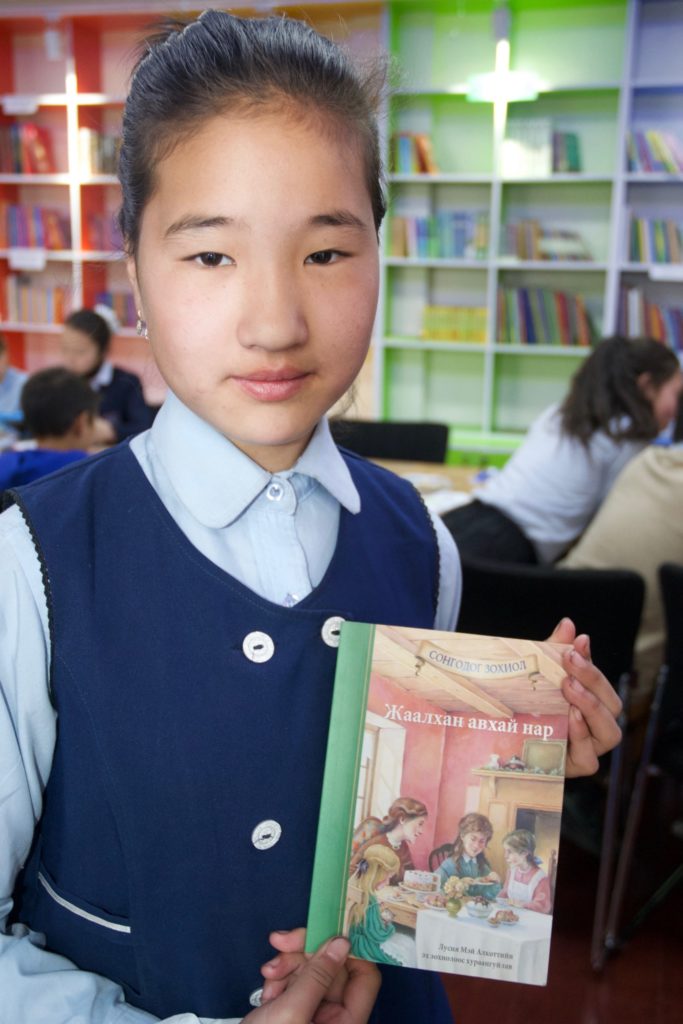
Growing up in the most impoverished district in Ulaanbaatar, Davaa may well identify with the pre-teen March sisters. In many ways, her life seems of another era, before modern comforts like indoor plumbing and electric heaters. Where she lives, there is no running water. Her home is a traditional, one-room Mongolian “ger,” heated by coal stove. Her bathroom is an outdoor latrine. Like the March sisters, whose mother takes charge after their father leaves for war, Davaa also lives in a family of women — and a house headed by a single mom.
Identifying with the characters in a story, and discovering that you are not alone in your experiences, is one of the universal joys of reading. But a year ago, Davaa had nowhere to go to discover a story like “Little Women.”
“Books are very expensive in Mongolia, and the local public library is in the city center, too far for the children to visit, especially as they cannot afford the bus fare,” explains Paul Kim, Holt’s director of Korea and Mongolia programs.
“So we took out a wall,” says May, standing in the one-room library and after-school program that Holt donors and sponsors now support for over 148 children in this community.
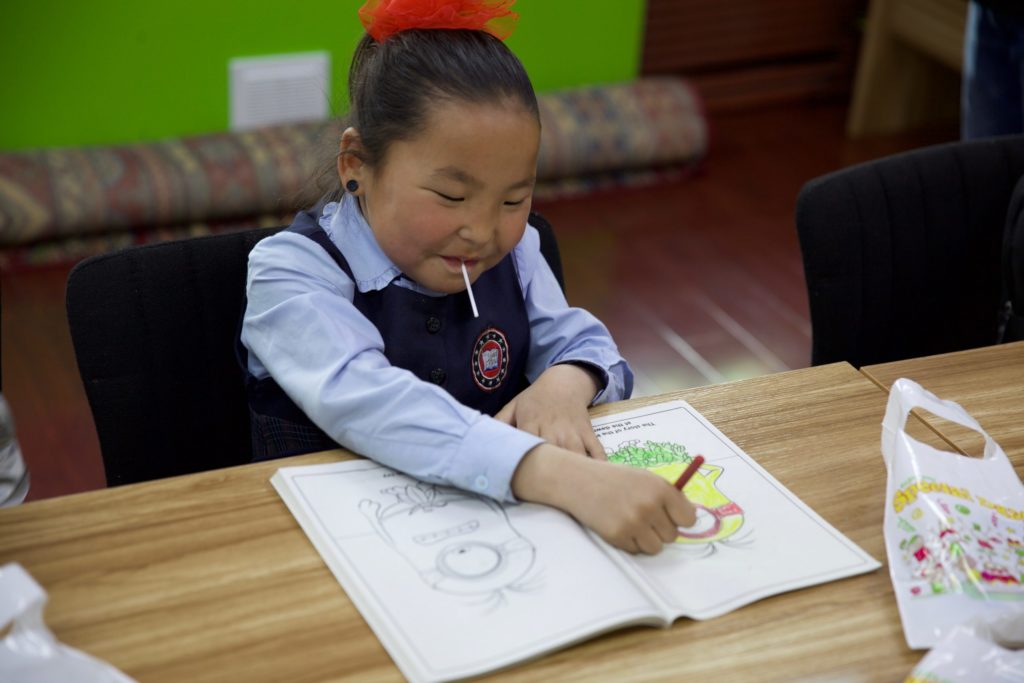
The wall Holt Mongolia knocked down divided two rooms in the district social welfare office building — a place where people go to register property ownership, establish residency and apply for social services. With the room donated by local officials, our staff converted it into a vibrant space for children to study and read after the short, four-hour school day that’s become the norm for Ulaanbaatar’s overcrowded public schools.
As Paul explains, when kids are only in school four hours a day — and have nowhere to go during their free time — they can easily get into trouble.
“There are no resources for these children,” he says. “If they have parents, the parents are working or trying to find jobs and the children are much more at risk of getting involved in illicit and unhealthy activities, leaving their homes, and living on the streets.”
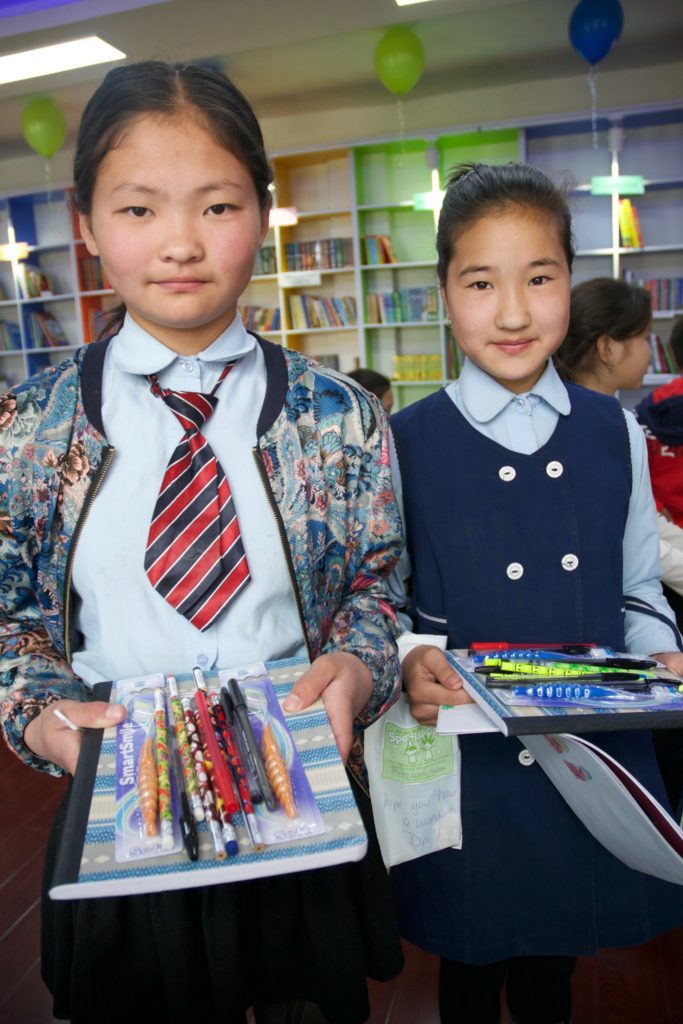
But at the library, these children have a sanctuary where they can go to read books and do homework with the help of the staff librarian, play games and even write email and do online research. Holt donors and community members helped fill the shelves with books in English and Mongolian, and sponsors provided the funds for every child who visits the library to receive a hot meal.
“For many of these children,” says May, “it’s the only one they will receive all day.”
A formally trained educator, the librarian is also an advocate for the children. She watches out for them, and notifies our social work team if any of them are facing challenges at home or in school.
When we visit on a 30-degree day in May, the children sit at the long table in the center of the room, eating candy and playing with balloons they received during a celebration for their U.S. visitors — a team of Holt donors who traveled here to help build homes for some of the most vulnerable families in the community.
World maps and children’s artwork cover the walls, including poems the librarian challenged the children to write about the library and what it means to them.
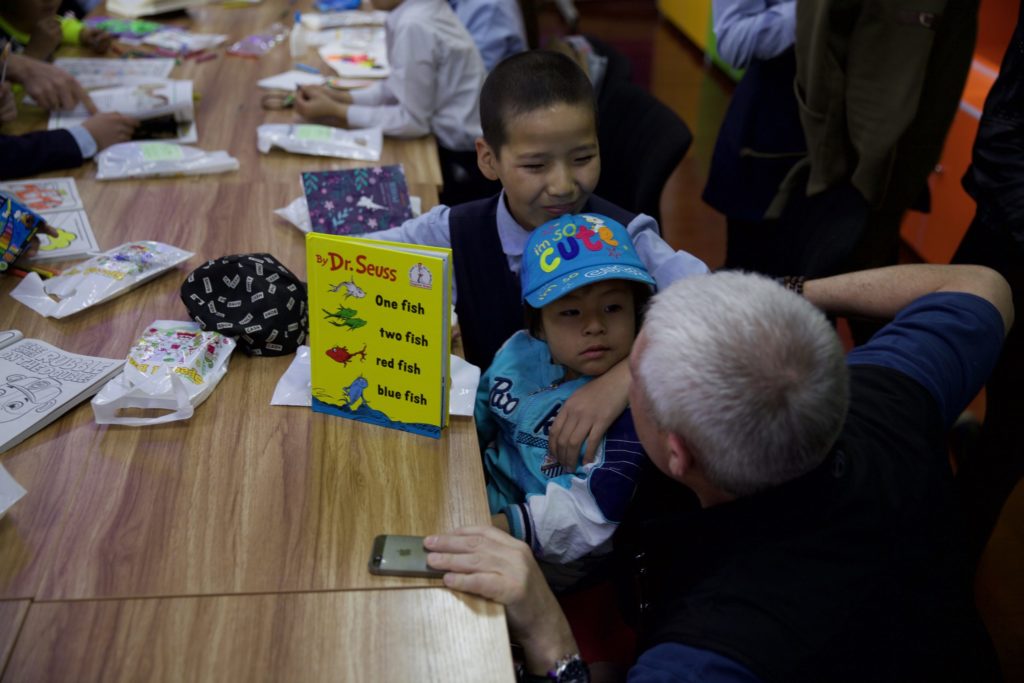
“My Lovely Library Books,” is the title of the winning poem. May translates the blue Cyrillic script of the 7th grade student who wrote the poem. It reads:
Our library is the loveliest place we go to get educated.
Even we have dreams about our library books in our night dreams.
In our library, we have so many books with nice pictures and
With knowledge and meaning, our library is a window to the world.
Our library is the place where we can make friends.
Let’s increase and expand our knowledge for our children.
The poetry contest winner is not present, but a couple of the finalists come to share their poems, including a young woman dressed in the striped tie and button-down shirt of her school uniform. She is 13, and in the eighth grade. Her smile is tight-lipped and serious, but she is clearly pleased about her achievement — her cheeks flushing a bit as she reads her poem.
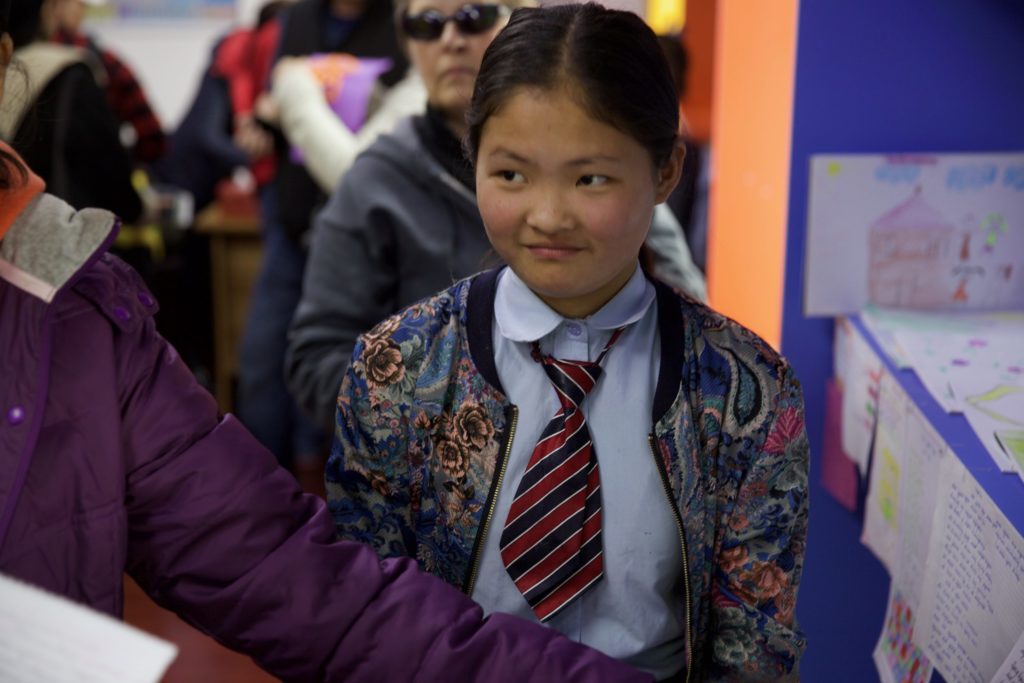
Every day, I come with hurry and happiness to my lovely place —
My library — where I can read about other worlds.
I love my library.
Not only reading the books.
I make here lots of friends where we can play together.
Books are the window to the world.
Please come, I would say to other children, and let’s read lots
Of books and have knowledge about other worlds.
And this library will give all of us a new life.
The author of this poem is named Munkh. She lives with her mom, her dad and her two younger siblings in her family’s ger, she shares.
“Before, I had less of a chance to do homework because our home is a very tiny space,” she says. “We don’t have a nice table and chairs.”
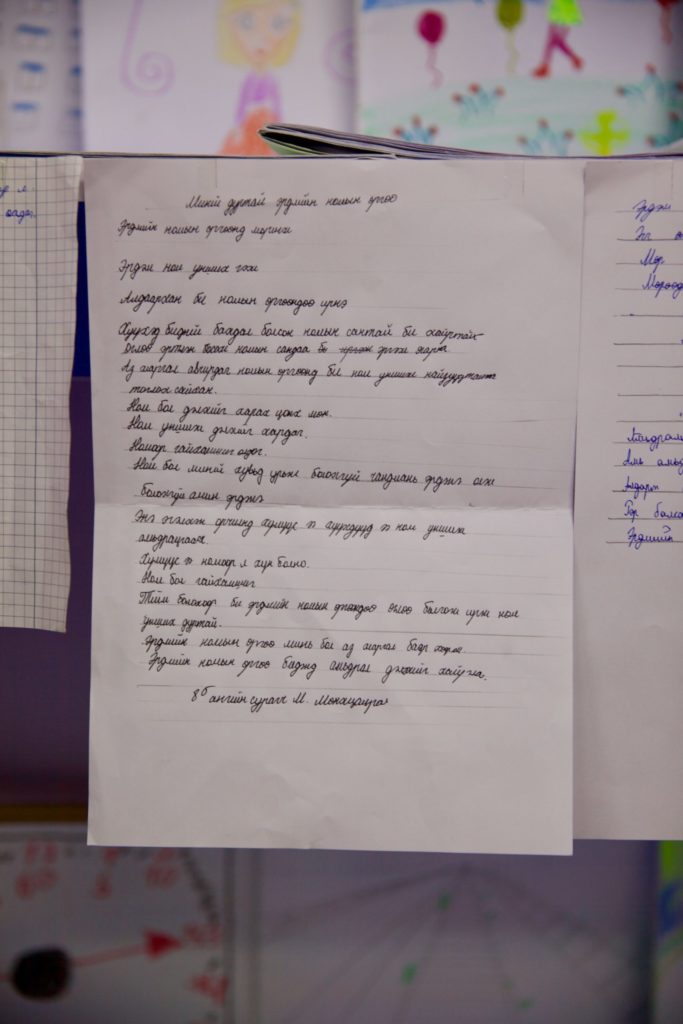
After school every day, Munkh says she tries to come to the library, where she plays and talks to her friends and loves the lunch program. Before, she just ate bread for lunch — never any meat, which May explains is a common problem for children in this community. But here, the children typically have soup followed by a more substantial second course, she says.
“I don’t go anywhere but the library,” Munkh says, sharing that her favorite books are adventure stories — the kind of stories she could never read at home, where she only has textbooks from school. When she grows up, she hopes to become a dentist. “If people have bad teeth, they can’t smile,” she says, making me wonder if she smiles with her lips so tight because she hasn’t received good dental care. But it’s her father who suffers from toothaches, she says.
One advantage of the after-school program is, in fact, the opportunity to regularly monitor the health and wellbeing of the children — and provide medical and hygiene care when needed.
“So many of the children who take part in the after-school program live in the ‘ger district,’ which lacks things we take for granted here at home, such as running water and indoor toilets,” Paul explains. “A hot shower is a luxury that many of the children have never experienced. The families do their best with what they have, but their lack of resources and education present obstacles that are difficult to overcome.”
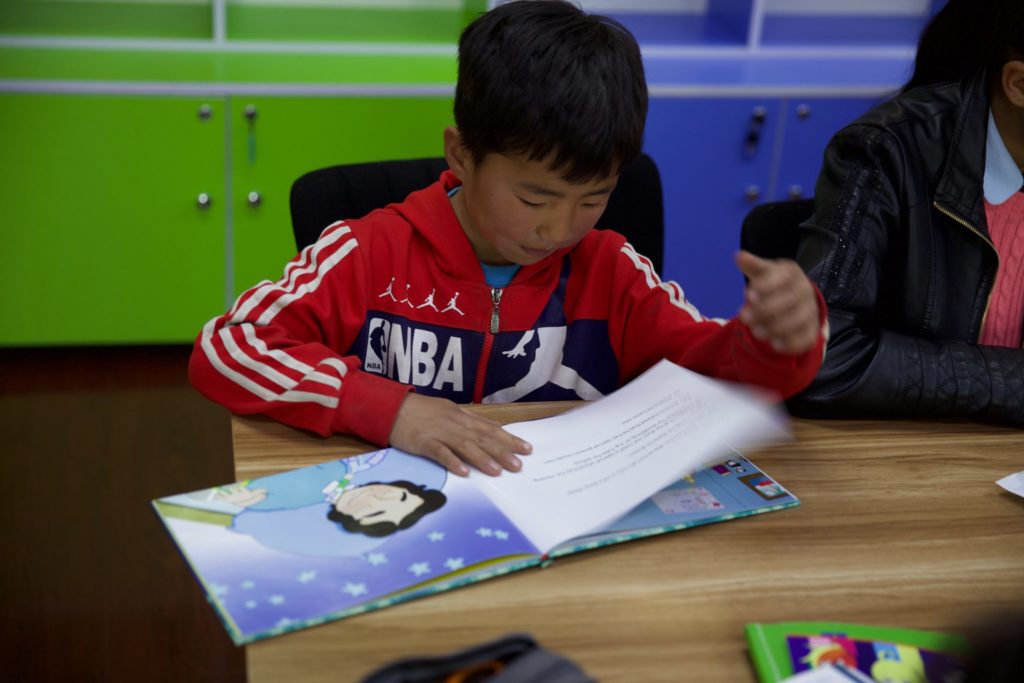
Although the library is a great learning resource for children, and a warm, safe place for them to go after school, it’s not enough to just help children while they are at the library, Paul says.
“So we are working to affect change at home.”
Working in partnership with the Ministry of Health, as well as with the district social welfare officers, our staff has already conducted numerous trainings at the library for the children’s parents.
“A great example is that we have been able to teach parents basic first aid, provide medical supplies, and educate families about where to take their children to receive medical care,” Paul says.
One chronic health issue that has become a focus of first aid trainings are burns from the hot stoves families use to heat their gers.
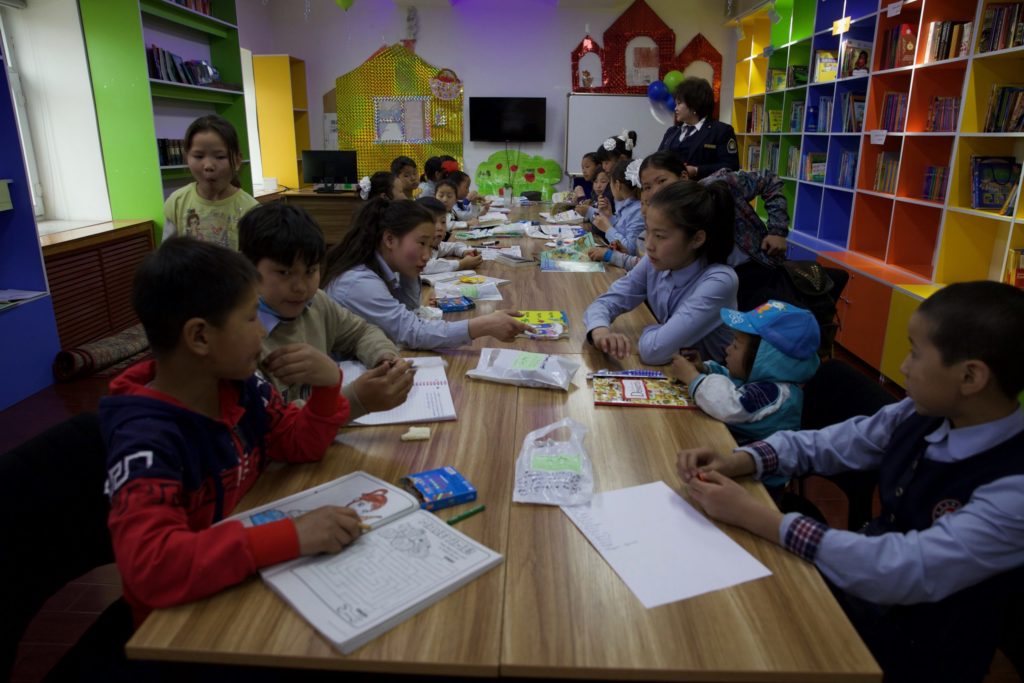
“So many of the families were treating burns using traditional methods, such as the application of animal fats to injuries, because that is all they knew and had on hand,” Paul explains. “Now they know proper treatments, and where to go to obtain first aid supplies.”
With its great central location for providing such critical services, the library has in many ways become the center of Holt programs in Mongolia.
But to the kids who come here every day, it is most of all a fun and interesting place to hang out after school.
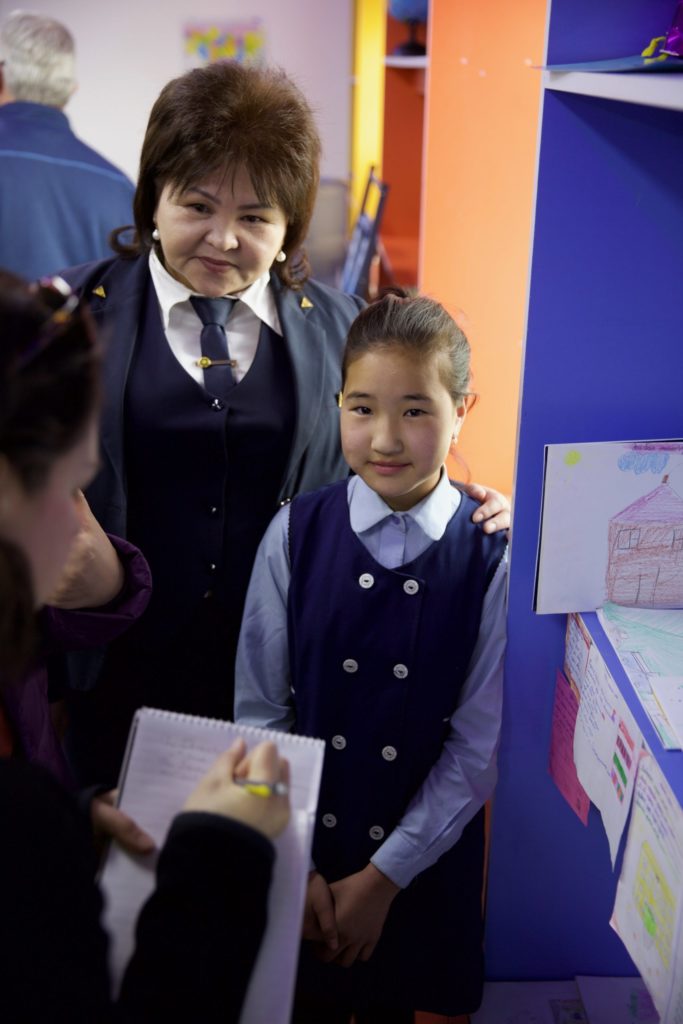
“Near our homes and school, there is no place like this,” says Munkh, who lives a half-hour walk from the library. “To the people who gave us the library, I would like to thank them for this place.”
When Davaa comes over to share her poem, she knows exactly who to thank for the library. She even knows that her sponsor has twin girls, and remembers that in the last letter they sent her, they wrote, “We love you and we will be praying for you.” Davaa keeps all of her letters and photos from her sponsor in a special album at home, she says.
Davaa’s mom is disabled and can’t work, and before the library, she would go home and clean after school. But now, she too is discovering other worlds, and hopes to work on a train when she’s older. She wants to travel, she says, and meet up with her big brother, who left home to join the circus.
Davaa’s poem reads:
The library brought us happiness and enlightened days
And also in the library we are so very happy here.
We would love to come every day to improve
And increase our knowledge so we can become smarter children.
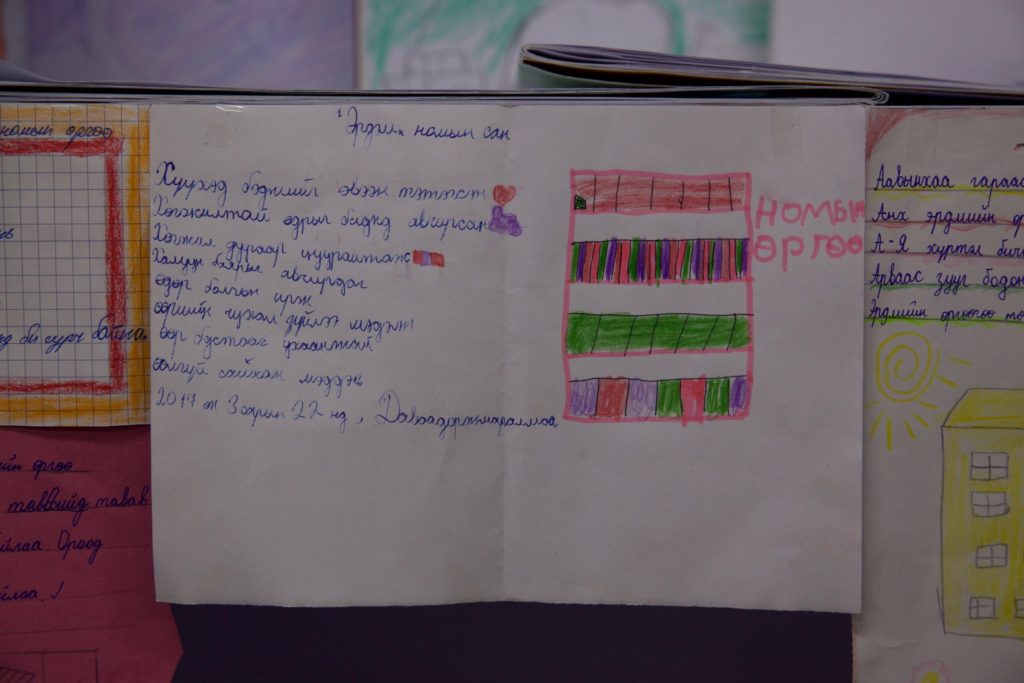
At 12 years old, in striped socks with red and white tennis shoes and little silver flower earrings, Davaa seems so youthful. And yet, she is just on the verge of maturity — just like Jo and Beth and Meg and Amy in “Little Women.” This is a critical time, just before high school, when many children can fall off course. But because of the compassionate and generous support of her sponsors — and everyone who contributed to her beloved library — Davaa can continue growing her knowledge of the world in the long hours after school lets out. Because of this lovely place, she enjoys enlightened days.
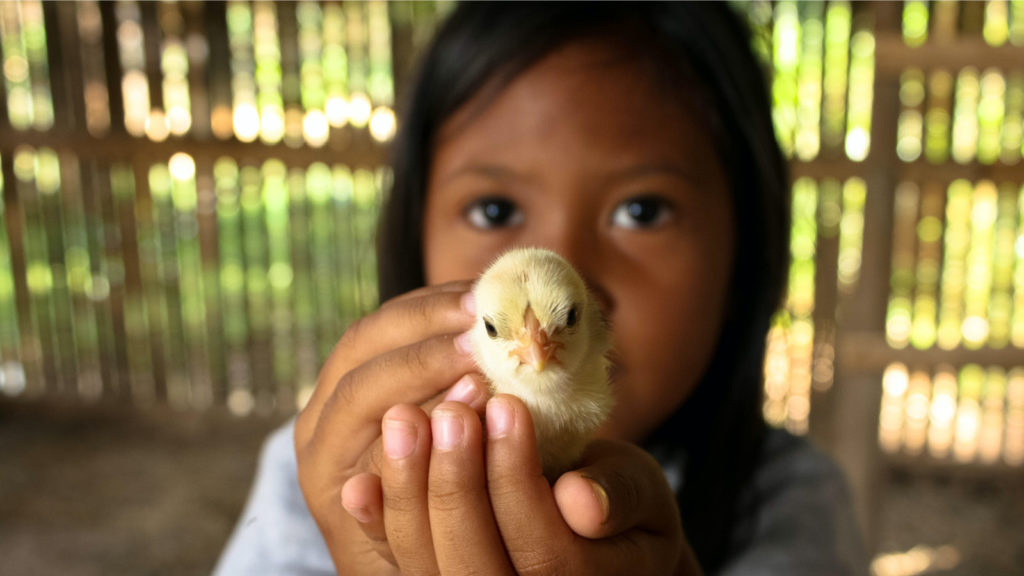
Give a Gift of Hope
Give a lifesaving or life-changing tangible gift to a child or family in need. And this holiday season, give in honor of a loved one and they’ll receive a free card!
